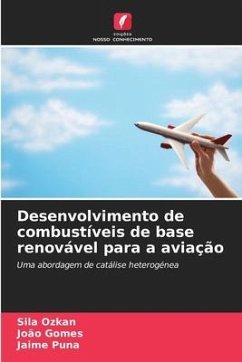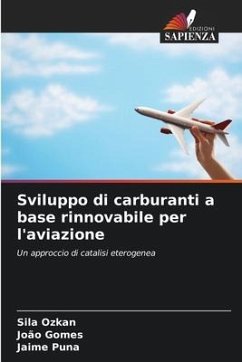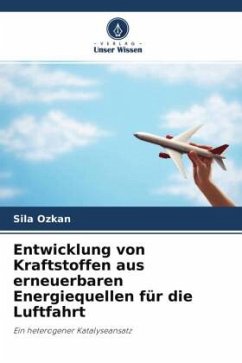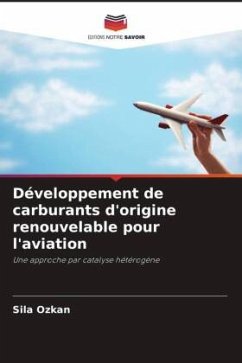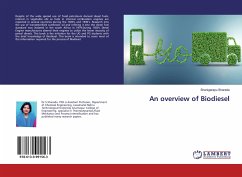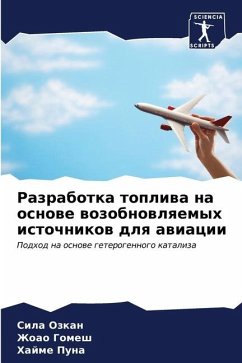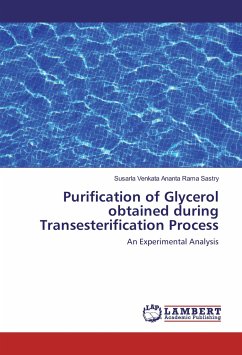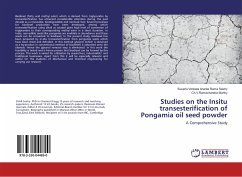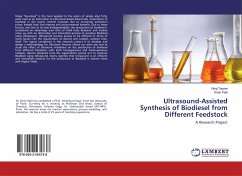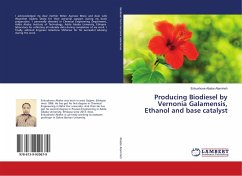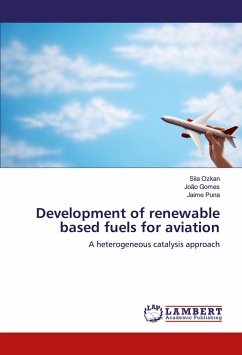
Development of renewable based fuels for aviation
A heterogeneous catalysis approach
Versandkostenfrei!
Versandfertig in 6-10 Tagen
29,99 €
inkl. MwSt.

PAYBACK Punkte
15 °P sammeln!
In this experimental work, natural calcium wastes have been used, separately or, in a blend of shellmix for producing biodiesel by heterogeneous catalysis. After several reactions, occurred between 30 minutes until 8 hours of reaction time, at 60 ºC, with a mass content of 5% (Wcat/Woil) and a molar ratio of methanol: oil = 12, after the purification process, biodiesel with fatty acid methyl ester (FAME) content measured, was higher than 99%, which indicates that was a biodiesel pure. Also, this work proved that, the inorganic solid wastes shell mixture used as heterogeneous catalyst, can be ...
In this experimental work, natural calcium wastes have been used, separately or, in a blend of shellmix for producing biodiesel by heterogeneous catalysis. After several reactions, occurred between 30 minutes until 8 hours of reaction time, at 60 ºC, with a mass content of 5% (Wcat/Woil) and a molar ratio of methanol: oil = 12, after the purification process, biodiesel with fatty acid methyl ester (FAME) content measured, was higher than 99%, which indicates that was a biodiesel pure. Also, this work proved that, the inorganic solid wastes shell mixture used as heterogeneous catalyst, can be reused 3 times and still gives a FAME content higher than 99%. As a result, after 40 different transesterification reactions that were performed, using liquid and solid wastes for producing biodiesel under specific conditions which are stated above, is a successful, innovative and promising way. In addition, blends prepared with jet fuel A1 and biodiesel were recorded with no invalid results after certain tests. In this case, except for the 10% blend, the added biodiesel had no significant effect on the fluidity of the biojet fuel.



